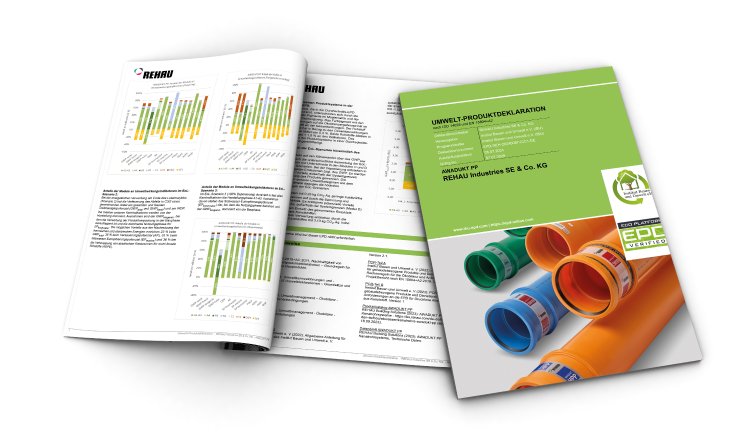Whether it is the upcoming sustainability reporting (CSRD obligation), the creation of life cycle assessments and environmental product declarations (EPD) or the transformation to a circular economy – the challenges for companies are manifold. Andreas Jenne, Sustainability Officer at Rehau Industries, is also aware of this: “For us, the circular economy is one of the key fields of action. We have built a broad base for this: From our own criteria and scorecards for recyclable product development and our development teams that research recycling options, to take-back concepts and subsidiaries for the reprocessing of old materials, we have already established the topic holistically.” However, for certain topics, it is strategically more favorable to rely on strong partners who already have in-depth knowledge of industry-relevant sustainability topics, says Jenne. “With the SKZ's Sustainability and Circular Economy department, we have exactly the right experts at our side.”
SKZ supports the plastics industry in many areas
For over 20 years, the topic of sustainability in the plastics industry has been the subject of a separate working group at SKZ. Due to the constant expansion of activities, the group became a whole division at the beginning of 2024, which now has twelve research associates. “Above all, the life cycle assessment (ecological sustainability assessment) of plastic products and processes has been a focus of our activities from the very beginning. In the meantime, however, we have positioned ourselves much more broadly in line with developments and support the plastics industry in many areas when it comes to implementing the requirements placed on it,” says Dr. Hermann Achenbach, head of the Sustainability and Circular Economy division at SKZ. In addition to life cycle assessments, this includes energy efficiency analyses, the development of tools for design for recycling, the further development of the digital product passport, preparation for mandatory sustainability reporting and the creation of transformation concepts for achieving climate neutrality. The circular economy is also a long-standing topic at Rehau: as early as the 1950s, processes were in place to close internal loops and reuse materials. Today, the company is consistently working together with external partners to steadily increase the use of recycled material in all products.
Training of employees
Rehau draws on various competencies of the SKZ. For example, the publication of EPDs is required for the construction products sector in view of the increasing importance of sustainable construction. Together with Rehau, SKZ is creating the standard-compliant (according to EN 15804) life cycle assessments and EPD documents for pipes, windows, edgebands, garden hoses, sewer shafts and seepage boxes. In order to build up expertise in sustainability assessment, SKZ is training Rehau employees in the topics of EPD and CO2 balancing of products.
Furthermore, SKZ experts support individual Rehau divisions in preparing for mandatory sustainability reporting and in calculating corporate carbon footprints for their products.
Collaboration on the KARE project
With a view to the transformation to a circular economy, Rehau and SKZ are working together on the KARE project. In KARE, a total of 16 partners from research and industry in and around Franconia are working to establish a regional competence center for labor research in the circular economy of plastics. The aim is to design the work processes of the participating companies in such a way that the recycling of plastics is successful and, at the same time, good working conditions for the employees are created. “A circular economy can only work if we cooperate. Participation in KARE is an excellent opportunity for us to further strengthen our commitment to the circular economy. Through cooperation and joint projects, we will take our transformation to another level, even within our own organization,” says Andreas Jenne. The KARE project, managed by SKZ, is funded by the German Federal Ministry of Education and Research (BMBF) from October 2023 to September 2028 (funding reference: 02L22C200).
More about circular economy at SKZ
More about REHAU Industries SE & Co. KG
More about KARE project



